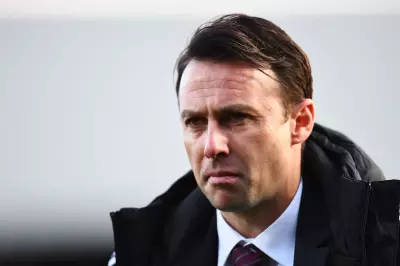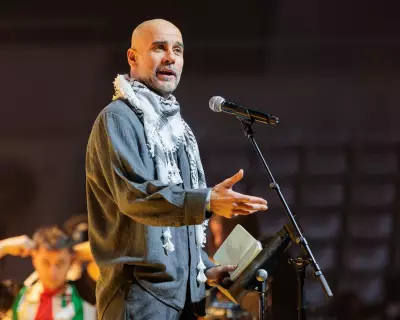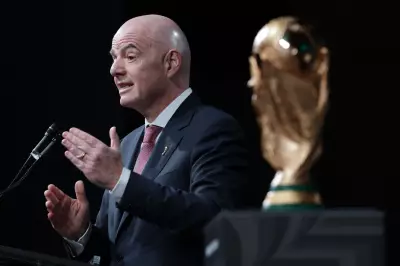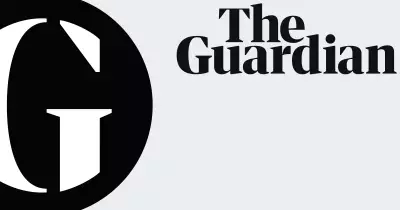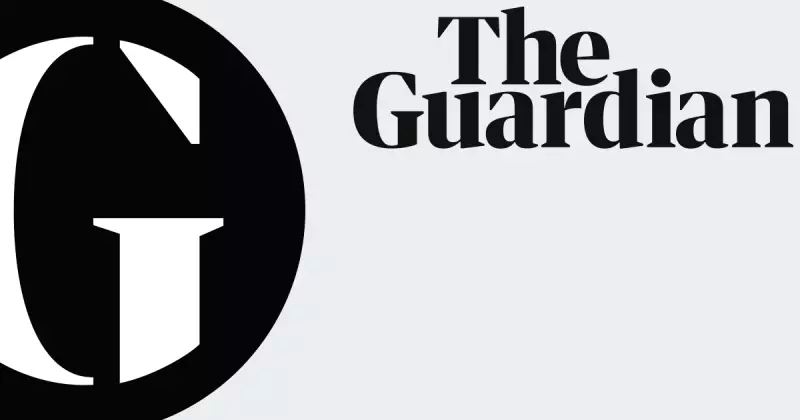
From Childhood Dream to Television Reality
British athlete Harry Aikines-Aryeetey has achieved what many children only dream of - becoming an actual Gladiator. The sprinter-turned-broadcaster, who now stars as Nitro in the revived television series, reveals that his ambition to join the iconic show began when he was just five years old.
Born in Carshalton, London in 1988, Aikines-Aryeetey's journey to television fame has been anything but conventional. He became the first athlete to win both the 100m and 200m at the World Youth Championships in 2005, setting the stage for an impressive athletic career that would see him compete in the Rio Olympics and represent Great Britain at multiple world championships, European championships and Commonwealth Games.
The Making of an Athlete
Aikines-Aryeetey's natural athleticism was evident from an early age. He was born with a myostatin deficiency, meaning he builds muscle easily without intensive training. "At the age of four, I already had biceps," he recalls, referencing childhood photos that show him flexing his muscles, inspired by Popeye and superheroes.
His incredible speed was discovered accidentally at age twelve when a coach witnessed him being chased by a labrador. "I had no idea how fast I could sprint until I was 12 and got chased by a dog," he explains. The coach immediately recognised his talent and directed him to training sessions with hurdles coach Lesley Alder.
Despite his natural ability, his parents initially hesitated about his athletic pursuits. They wanted him to focus on education and secure a traditional career, only allowing him to continue competing when he repeatedly proved his excellence by winning national titles, the BBC Young Sports Personality of the Year award, and securing sponsorship from Nike.
Family Values and Cultural Roots
Aikines-Aryeetey's strong family values stem from his parents' immigrant experience. His father arrived from Ghana in the late 1980s, having to rebuild his life from scratch in London before bringing over his wife and daughters. The athlete was born after the family reunion, prompting such celebration that his father bought a sound system and "they had a rave for a month."
He describes his childhood home as filled with the aroma of traditional Ghanaian dishes like plantain and okra stew, and remembers being taught independence through cooking and cleaning from a young age. "We weren't the richest by any means, but we had everything," he reflects, noting how his sisters would playfully dress him in a pink polka-dot dress to tease their father.
Overcoming Stereotypes and Injury
Throughout his career, Aikines-Aryeetey has faced microaggressions and stereotyping. People have expressed surprise at his "well-spoken" manner and his name "Harry," expecting a different personality from a "big, strong black man." He's been told he's too "nice" to be a sprinter and doesn't fit the aggressive stereotype some expect.
More hurtfully, he's had people question his British identity despite winning medals for Great Britain. "I was brought up in this country and I'm very passionate about the monarchy," he states, emphasising how he's learned to turn negatives into positives and embrace his identity.
Injuries have also tested his resilience. At sixteen, he competed with a stress fracture in his back to win the World Juniors, only to be placed in a back brace shortly after. More recently, an injury forced him to take a break from Gladiators, making him worry he'd "never be my full self again."
New Beginnings and Lasting Legacy
His move into television in 2023 as Gladiators' Nitro has opened new opportunities, including presenting work and this year's participation in Strictly Come Dancing. He notes feeling "more looked after in the TV industry compared with the track world," where athletes can be discarded when no longer "useful."
Now a father himself, Aikines-Aryeetey sees his daughter displaying the same thoughtfulness his parents taught him. "She always laughs, but she's the first to tell me to stop if she spots another child who wants a turn," he says proudly.
Reflecting on his diverse career spanning athletics, Gladiators, and presenting, he identifies a common thread: "I'm here to make people smile." This philosophy, rooted in his upbringing, continues to drive him as he embraces each new challenge with the same enthusiasm that once propelled a five-year-old boy dreaming of becoming a Gladiator.

